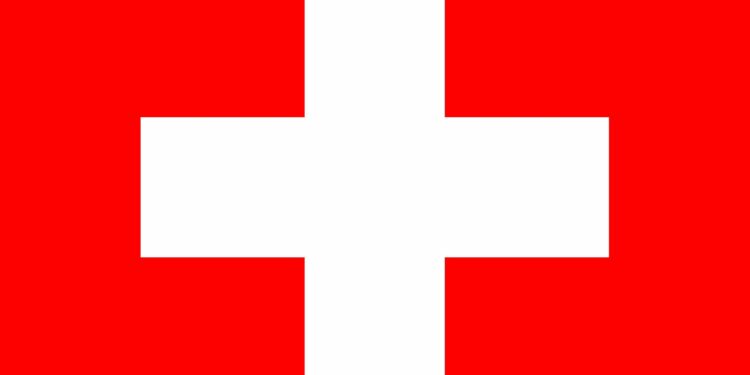Switzerland, federated country of central Europe. Switzerland’s administrative capital is Bern, while Lausanne serves as its judicial centre. Switzerland’s small size—its total area is about half that of Scotland—and its modest population give little indication of its international significance.
A landlocked country of towering mountains, deep Alpine lakes, grassy valleys dotted with neat farms and small villages, and thriving cities that blend the old and the new, Switzerland is the nexus of the diverse physical and cultural geography of western Europe, renowned for both its natural beauty and its way of life. Aspects of both have become bywords for the country, whose very name conjures images of the glacier-carved Alps beloved of writers, artists, photographers, and outdoor sports enthusiasts from around the world.
Audio File:
National anthem of Switzerland
Head Of State And Government:
President of the Federal Council: Viola Amherd
(Show more)
Capital:
Bern2
(Show more)
Population:
(2024 est.) 8,932,000
(Show more)
Currency Exchange Rate:
1 USD equals 0.919 Swiss franc
(Show more)
Form Of Government:
federal state with two legislative houses (Council of States [46]; National Council [200])
(Show more)
See all facts & stats →
For many outsiders, Switzerland also evokes a prosperous if rather staid and unexciting society, an image that is now dated. Switzerland remains wealthy and orderly, but its mountain-walled valleys are far more likely to echo the music of a local rock band than a yodel or an alphorn. Most Swiss live in towns and cities, not in the idyllic rural landscapes that captivated the world through Johanna Spyri’s Heidi (1880–81), the country’s best-known literary work. Switzerland’s cities have emerged as international centres of industry and commerce connected to the larger world, a very different tenor from Switzerland’s isolated, more inward-looking past. As a consequence of its remarkably long-lived stability and carefully guarded neutrality, Switzerland—Geneva, in particular—has been selected as headquarters for a wide array of governmental and nongovernmental organizations, including many associated with the United Nations (UN)—an organization the Swiss resisted joining until the early 21st century.
Switzerland’s rugged topography and multicultural milieu have tended to emphasize difference. People living in close proximity may speak markedly distinct, sometimes nearly mutually unintelligible dialects of their first language, if not a different language altogether. German, French, Italian, and Romansh all enjoy national status, and English is spoken widely. Invisible lines separate historically Protestant from historically Roman Catholic districts, while the tall mountains of the St. Gotthard Pass separate northern from southern Europe and their diverse sensibilities and habits. Yet, Switzerland has forged strength from all these differences, creating a peaceful society in which individual rights are carefully balanced against community and national interests.
Switzerland was formed in 1291 by an alliance of cantons against the Habsburg dynasty—the Confoederatio Helvetica (or Swiss Confederation), from which the abbreviation CH for Switzerland derives—though only in 1848, when a new constitution was adopted, was the present nation formed. Prior to 1848, internal conflict was quite common, but Switzerland has enjoyed relative domestic tranquility since the mid-19th century, and its organization has remained essentially the same: it is a union of more than 3,000 communes, or municipalities, situated in 26 cantons, 6 of which are traditionally referred to as demicantons (half cantons) but function as full cantons. Ordinary citizens are able to participate at every level of politics and regularly exercise their will in referenda and initiatives, through which Swiss citizens directly make numerous policy decisions at the national and subnational level. Two effects of this popular involvement are evident: Swiss taxes are rather low by European standards, because voters are able to review and approve a broad range of expenditures, and political decision making tends to be slow, because contending individual claims and opinions must be allowed to be expressed at every step.
Britannica Quiz
Which Country Is Larger? Quiz
That high level of citizen involvement prompted the renowned 20th-century Swiss playwright and ironist Friedrich Dürrenmatt to allegorize Switzerland as a prison in which each Swiss citizen was at the same time prisoner and guard. Even so, the Swiss blend of federalism and direct democracy is unique in the world and is considered central to the country’s political and economic success. And Switzerland is indeed a major economic power, thanks to its long tradition of financial services and high-quality, specialized manufactures of items such as precision timepieces, optics, chemicals, and pharmaceuticals, as well as of specialty foodstuffs such as Emmentaler cheese and milk chocolate. Switzerland is regularly judged to have among the world’s highest standards of living.
Bern is a placid city whose name derives from the bear pits the canton’s medieval rulers established there as a heraldic symbol; the bear pits are now part of the city’s popular zoo. A metropolis extending along a large lake where the mountains meet the plains, Zürich is by far the country’s largest and most cosmopolitan city, its famed Bahnhofstrasse rivaling shopping districts found in other leading cities in the world. Basel and Lucerne are major German-speaking cities, Geneva and Lausanne the centres of the country’s French-speaking cantons, and Bellinzona and Lugano the principal cities in the Italian-speaking Ticino.
Switzerland has long been a model multiethnic, multilingual society, a place in which diverse peoples can live in social harmony and unite in common interest. The Swiss justifiably take great pride in this, and the point was encapsulated in the early 21st century by Ruth Dreifuss, who in 1999 became the country’s first woman and first Jewish president (a post that rotates annually):
I may be a native speaker of French, but my parents originally came from German-speaking Switzerland and I myself worked in an Italian-speaking area for a while and enjoy travelling to all parts of the country…. I live in a neighbourhood in which over 100 different nationalities live together in peace and harmony…. I greatly appreciate this diversity.
Source link : https://www.britannica.com/place/Switzerland
Author :
Publish date : 2024-10-13 05:00:00
Copyright for syndicated content belongs to the linked Source.


